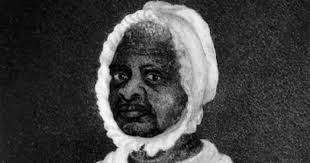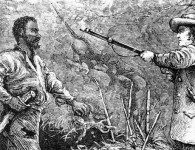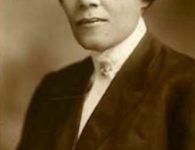The 1781 Berkshire County Case Of Brom And Bett vs. Ashley
“I heard that paper read yesterday, that says, all men are created equal, and that every man has a right to freedom. I’m not a dumb critter; won’t the law give me my freedom?” 13 — Elizabeth Freedom (Mum Bett)
 After overhearing discussions of the new Massachusetts State Constitution, the Bill of Rights and that all people were born free and equal in the Ashely’s home, Bett believed the law had to be applicable to her as well. As such, Bett asked for the counsel of a young abolition-minded lawyer named Theodore Sedgwick 14to help her use the law to sue for freedom. Sedgwick believed slaves were indeed human beings, accepted her case and that of Brom, another of Colonel Ashley’s slaves. Next, Sedgwick recruited the help of the founder of America’s first law school (located at Litchfield, Connecticut), Tapping Reeve. When the case of Brom and Bett vs. Ashley 15 was heard before the County Court of Common Pleas in Great Barrington, Massachusetts, Sedgwick and Reeve argued that the constitutional provision that “all men are born free and equal” nullified the slave system in the state. In the end, the jury ruled in Bett’s favor and found that: “Brom and Bett are not, nor were they at the time of the purchase of the original writ the legal Negro of the said John Ashley.” So in August of 1781, the court assessed damages of thirty (30) shillings, awarded both plaintiffs (i.e., Brom and Bett) compensation for their labor and Bett became the First Black American WomanTo Be Recognized As A Legal Person And Set Free under the Massachusetts State Constitution. Although this victory was a lower court decision with very limited influence, the case was a serious blow to slavery in Massachusetts.
After overhearing discussions of the new Massachusetts State Constitution, the Bill of Rights and that all people were born free and equal in the Ashely’s home, Bett believed the law had to be applicable to her as well. As such, Bett asked for the counsel of a young abolition-minded lawyer named Theodore Sedgwick 14to help her use the law to sue for freedom. Sedgwick believed slaves were indeed human beings, accepted her case and that of Brom, another of Colonel Ashley’s slaves. Next, Sedgwick recruited the help of the founder of America’s first law school (located at Litchfield, Connecticut), Tapping Reeve. When the case of Brom and Bett vs. Ashley 15 was heard before the County Court of Common Pleas in Great Barrington, Massachusetts, Sedgwick and Reeve argued that the constitutional provision that “all men are born free and equal” nullified the slave system in the state. In the end, the jury ruled in Bett’s favor and found that: “Brom and Bett are not, nor were they at the time of the purchase of the original writ the legal Negro of the said John Ashley.” So in August of 1781, the court assessed damages of thirty (30) shillings, awarded both plaintiffs (i.e., Brom and Bett) compensation for their labor and Bett became the First Black American WomanTo Be Recognized As A Legal Person And Set Free under the Massachusetts State Constitution. Although this victory was a lower court decision with very limited influence, the case was a serious blow to slavery in Massachusetts.
Read More @https://issues4lifefoundation.wordpress.com






















No comments